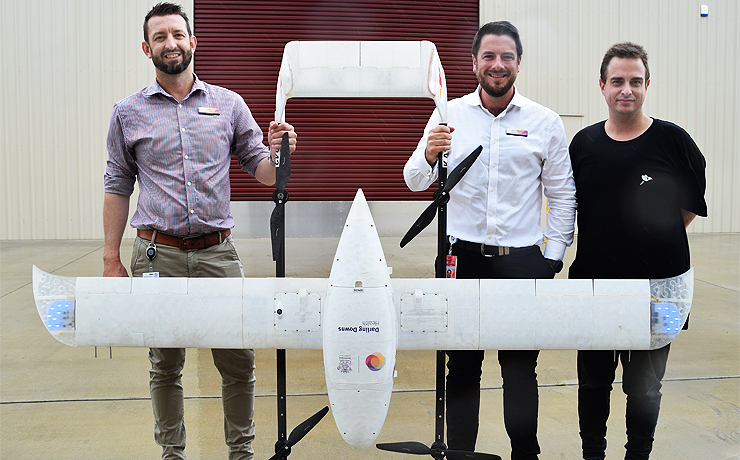
November 28, 2023
A Phase 1 trial to test medical drone deliveries in the South Burnett is about to end, but Darling Downs Health is confident a second, larger trial, will be able to take off early next year.
For about the past five weeks, lightweight Kookaburra drones operated by Swoop Aero have been flying between Murgon, Wondai and Nanango hospitals to a hub in Kingaroy.
About 60 to 70 flights have taken place in partnership with Darling Downs Health.
The maximum height they are approved to fly is 400 feet, but technically the aircraft could operate as high as 7000 feet.
The drones have been carrying practice loads as well as blood and other specimens to Kingaroy Hospital’s pathology lab.
The samples are carefully wrapped by hospital staff in multiple layers of packaging before being placed in a special carry box that fits into a compartment in the fuselage.
Social media has been abuzz about the drones after local pilots and model plane enthusiasts were alerted to their flightpaths, and residents spotted them taking off and landing.
Darling Downs Health manager of rural operations Dave Pugsley said the drive from Nanango Hospital to Kingaroy Hospital took about 30 minutes while the drone delivery took about half that time.
This means quicker diagnoses for patients, and, importantly, also does not take a hospital staff member away from other tasks.
The trial, which is the first for an Australian health service, began immediately after CASA approval was obtained about two months ago.
Mr Pugsley said the South Burnett trial area – covering 40,000 square kilometres – is the largest region CASA has approved for such a project, which was very exciting for Darling Downs Health.
The actual drone pilot is based in Swoop Aero’s remote operations centre in Melbourne.
The pilot is in constant communication with a hub operator in Kingaroy who is monitoring other air traffic in the area.
The Phase 2 trial, if approved, would use Swoop Aero’s larger Kite drone which could potentially send samples to Toowoomba Hospital in 40-60 minutes, saving a huge amount of time.
“The faster that we can provide a diagnosis to a patient, the faster that we can administer medicine or a treatment pathway,” Mr Pugsley said.
DDH rural manager of operational services, Jake Simpson, said operational staff – cooks, cleaners and wardspeople – had been undergoing training at the four hospital sites since August on safety operations, how to receive the drones and communicate with the hub operator and pilot.
“They have done an exceptional job,” he said.
“It’s a training opportunity and an educational opportunity for our staff. There’s a lot of excitement around it.”
Just like any aircraft, the staff work through a detailed pre-flight checklist before getting approval to push the button, step back and watch the drone take off.
Mr Pugsley said he hoped CASA approval for the larger drone trial would be approved soon to enable a rollout of flights to Toowoomba in February, and then, hopefully, a scale-up to the rest of the Darling Downs Health region.
“It’s about getting tests faster to places that they need to go, pharmacy where it needs to go, instruments to where they need to go, monitoring devices … it’s not just about pathology or pharmacy, it’s about anything we can do to benefit Queenslanders west of Brisbane,” he said.
The cost of the Phase 1 and Phase 2 trials is being covered by Swoop Aero, with assistance from a Federal Government grant.
Swoop Aero are not newcomers to medical deliveries.
They have been operating internationally for many years, especially in Africa, and have also been involved in a private partnership with healthcare wholesaler Symbion to deliver medications via drones in the Goondiwindi area.
Related articles:
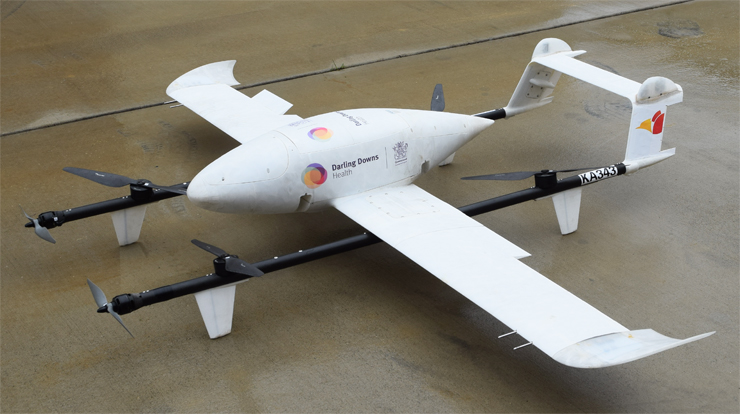
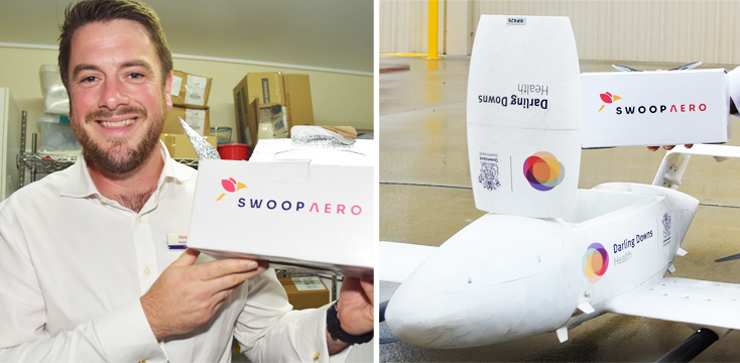
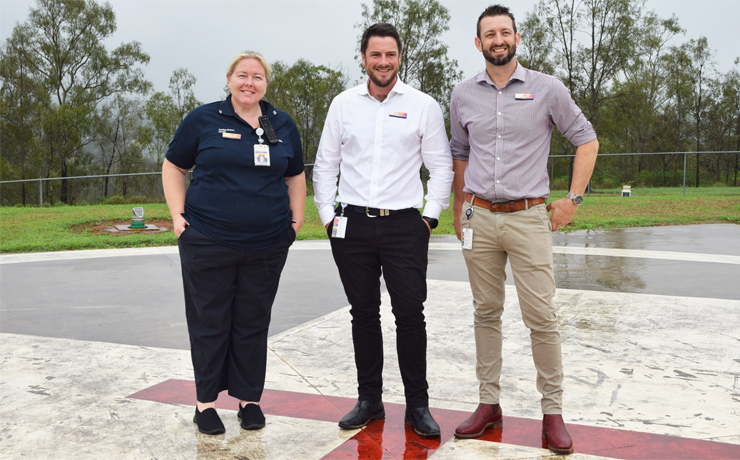
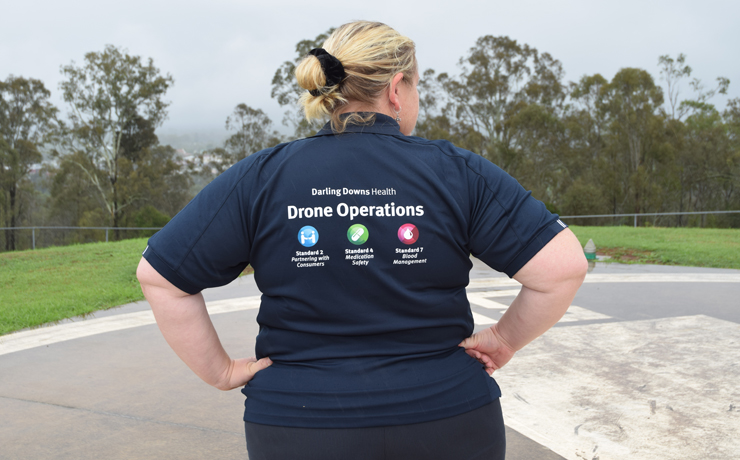







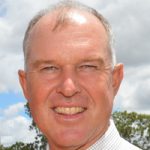
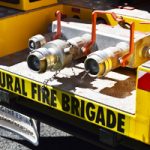



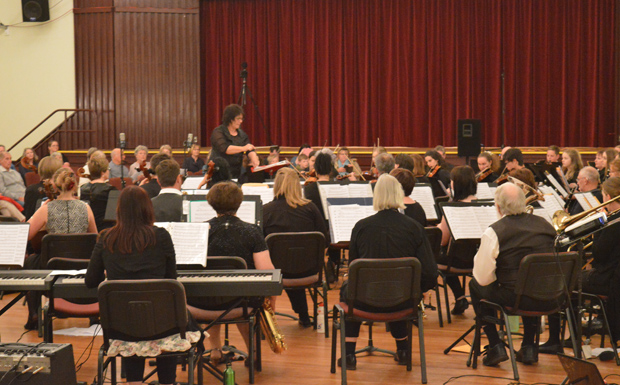
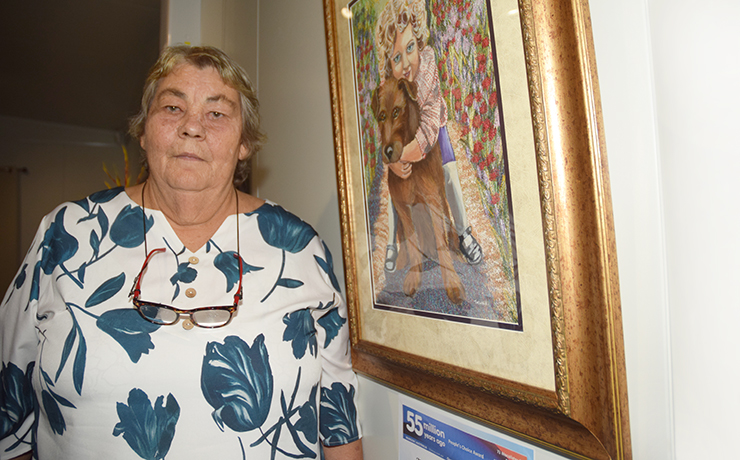










What a great outcome for the South Burnett and more! Well done all!